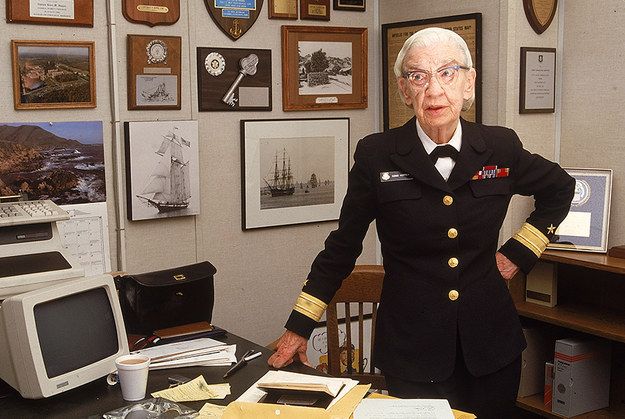Course(s): Secondary ELA (11th and 12th) , General Secondary Education
Department: English Language Arts, General Instruction
Institution: St. Martin de Porres High School, Cleveland Schools
Instructor(s)/Contributors(s): Will Fistek, Grant Coultrup
Number & Level of Students Enrolled:
Digital Tools/Technologies Used: Google Suite (Docs, Sheets, Forms)
Author Bios:
Will Fistek is a first year teacher and co-founder of the Food for Change co-op. Born and raised in Cleveland, Will studied English Literature with a concentration in text, image, and design while competing in collegiate rowing. Will is currently attending Cleveland State University’s Master’s of Urban Secondary Teaching (MUST) program, where he is projected to graduate in June 2021. Will is also a rowing coach, a freelance photographer, and an athlete.
Grant Coultrup is a technologist co-founder of the Food for Change co-op. Hailing from a liberal arts background, Grant studied accounting and administration while competing in collegiate rowing. After college, work in private accounting and athletic coaching set the foundation for current entrepreneurial exploits. Now Grant performs research for an additive manufacturing startup while serving as the media officer for an athletics video production organization. Outside of 3D printing and media production, he enjoys painting, running, and maintaining a collection of miniature bonsai trees.

“The most dangerous phrase in the language is ‘we’ve always done it this way.’”
-Rear Admiral Grace Hopper

“It is not the strongest of the species that survives, nor the most intelligent, but the one most responsive to change.
-Charles Darwin

“Intelligence is the ability to adapt to change.”
-Stephen Hawking

“Not everything that is faced can be changed, but nothing can be changed until it is faced.”
-James Baldwin
History has shown us time and again: change, or more acutely the ability to adapt to change, is a necessary element to any sort of progress in life. Change is a constant part of humanity and reveals itself in the smallest, most subtle ways or rears its head in more large, glaringly obvious ways. Sometimes that change is welcomed, but other times it is met with resistance, being interpreted as the last thing we want to happen. We can all understand that change is something we all experience in some way, shape, or form.
Further examination shows that, as humans become more adaptable to change, deeper skills and advancements are developed in not just the individuals but also the communities surrounding them. This sort of wisdom has been understood for a while now, thanks to the minds of Hopper, Darwin, Hawking, Baldwin, and many more. Less obvious, though, is an effective strategy of managing change in a consistently beneficial way. Is change always perceived as a good thing? Are there times when change adds unwanted stress to our lives? Do we find that certain instances of change feel like that final breaking point, where the metaphorical needle of change is pressed into the fragile balloon of our mental stability? To develop a better understanding of how to engage with this change in the context of the world, we are launching a multimodal project: Food for Change. While there might never be a perfect grasp on how to manage some of the world’s most difficult instances of change, we hope to narrow in on some key elements of change in an effort to keep a consistent flow of ideas and forward progress in society and, for the purposes of the current study, in education.
Project Layout:
Who?
Grant Coultrup and Will Fistek, in collaboration with the Cleveland Teaching Collaborative, will be working together to fulfill this project.
What?
Google Classroom, YouTube, PDFs, applications, other learning platforms, and their teacher’s faces splattering words out onto a screen. This list represents the extent to which high school students, during the time of quarantine online learning due to COVID-19, have been forced to engage with every day. This unique time has presented a new set of challenges for teachers revolving around the issue of student engagement. It is universally recognized throughout national education systems that there have been issues with students logging on and staying for class, with students submitting assignments on time, and with presenting materials in such a way that is engaging to the students. Our project seeks to look into these issues of engagement within the classroom. To approach a clearer grasp of this, the project will consist of three stages. Our project seeks to look into these issues of engagement within the classroom. To approach a clearer grasp of this, the project will consist of three stages. Stage one and two, which we are currently in, represents the launch of our project with a corresponding “pilot” podcast and sending out a survey (Click here!) to teachers within Cleveland education institutions along with organizing the data from those surveys to compile any relevant information. Stage three will consist of a compilation stage where Will Fistek and Grant Coultrup hold a conversation about the issues of quarantine classroom engagement where the results of the surveys will aid into a productive, empowering conversation that all interested individuals can engage with.
Why?
Although many of the changes that have been forced onto society because of COVID-19 have been unwelcomed, our new reality has awoken the hidden capabilities of contemporary technology. In particular, video conferencing platforms such as Zoom, Google Meets, and Microsoft teams formerly were not as widely utilized by schools. In addition, other user-friendly applications such as Kahoot, Peardeck, Nearpod, Jamboard, and so on have become staple applications for teachers to turn to in the online setting.[1]
We are certain that education, in some areas, will look wildly different. For example, it would not be surprising if entire school platforms were created to be online. Recognizing this new reality, our survey aims to consider what high school teachers consider to be the most effective (and not so effective) strategies for teaching online. In doing so, we seek to gather valuable information that will help to inform education.
Where?
Will Fistek is a high school teacher in the city of Cleveland and has several connections within the education network of the area. Grant Coultrup works as a researcher in additive manufacturing and developing ways to bring Maker Space opportunities into K-12 schools. As such, the survey will be open for all educators to take, regardless of geographic location. We understand that schools might view educational practices differently depending on location, however, our goal is to have a broad lens to start and narrow down in future research as necessary.
When?
The project will occur on an ongoing basis throughout the 2021 Spring and Summer semesters, where Grant and Will plan to integrate, utilize, and adapt the project to fit the changing sensibilities of education.
One thing that is certain after seeing the world go into quarantine is that few things are certainly moving forward, particularly within the world of education. Everywhere are questions regarding whether society will ever get back to what was once considered “normal,” such as physical, in-person school attendance. Schools seem to be, in some capacity, getting by while operating in the remote setting, and if schools decide to stay remote in any capacity post-pandemic it is essential that clear and effective remote teaching methods are studied, shared, and implemented in a cohesive and consistent manner. As a result, the Food for Change: Online Education project acts as a beginning to the consideration of which remote classroom practices work and which ones have fallen prey to evolution.
How? (Survey Distribution/Data Collection)
Following completion and review, the survey is to be distributed to education
professionals through the following channels:
- CLE Teaching Collaborative network of professionals
- Grant’s and Will’s personally and professionally related media channels (Includes but is not limited to: Cleveland State University, Orange Coast College, The Rowing Channel, Saint Martin de Porres High School, Friends of Mercyhurst Rowing, and so on)
- The redistribution of the survey by any individuals who take the survey and feel compelled to send it along
The survey will be re-shared [weekly or bi-weekly]. To boost responses, we will
attempt to personally interact with key respondents to encourage further
distribution through their channels.
Please find the survey link below:

2 thoughts on “Food for Change: Online Education”